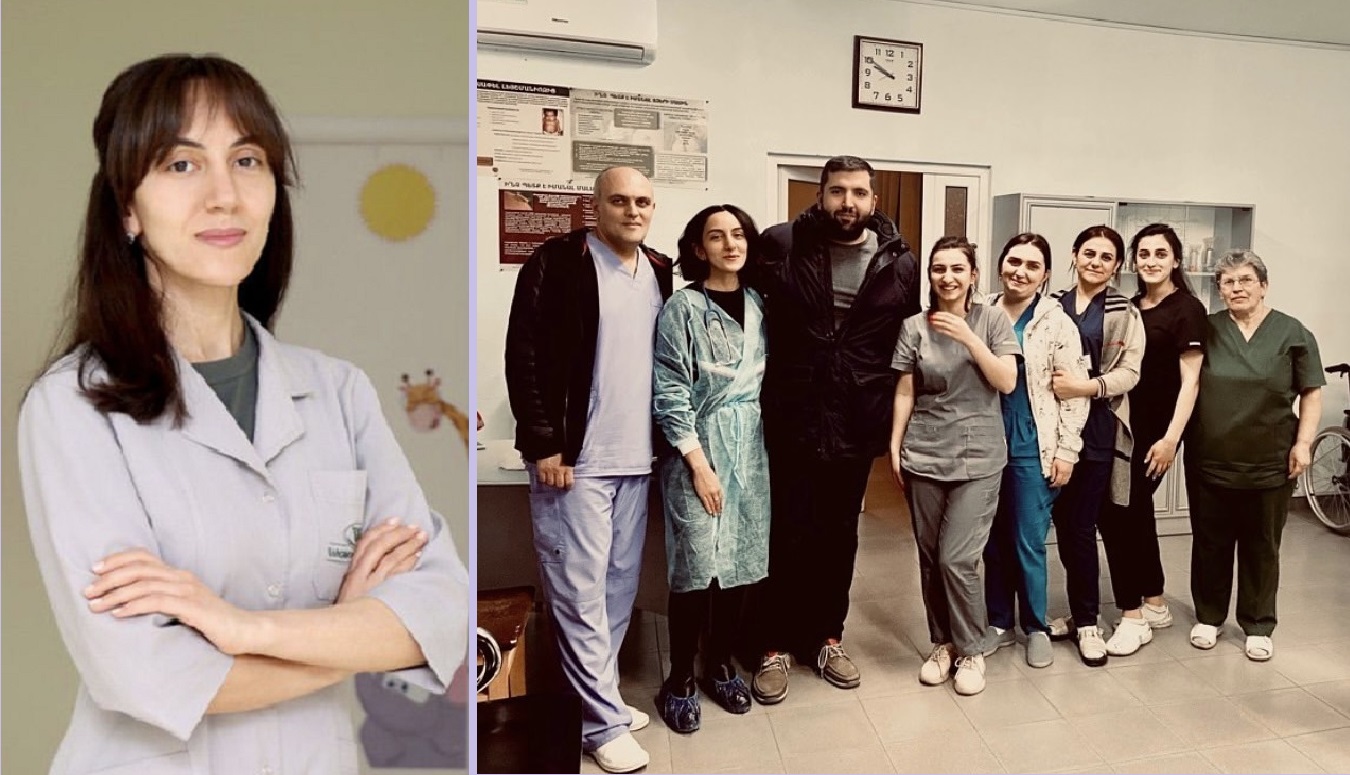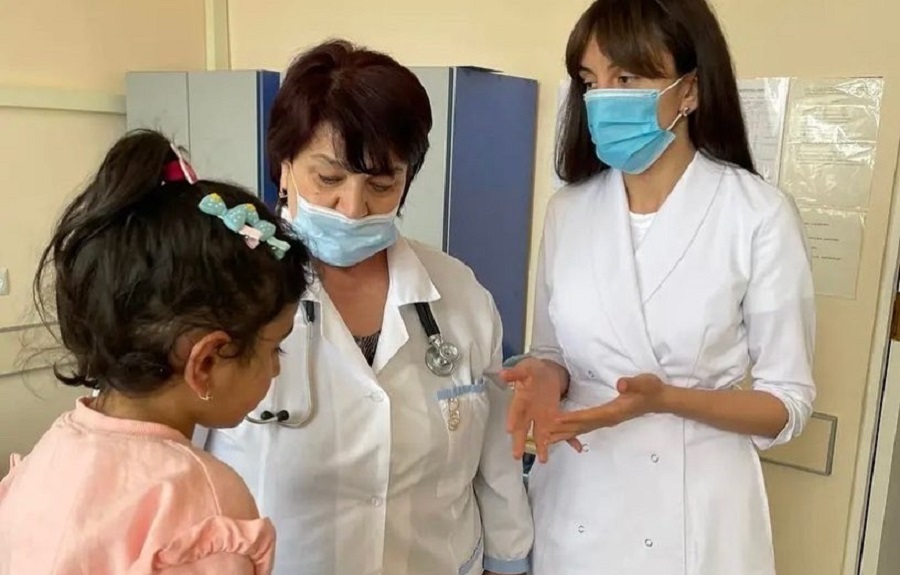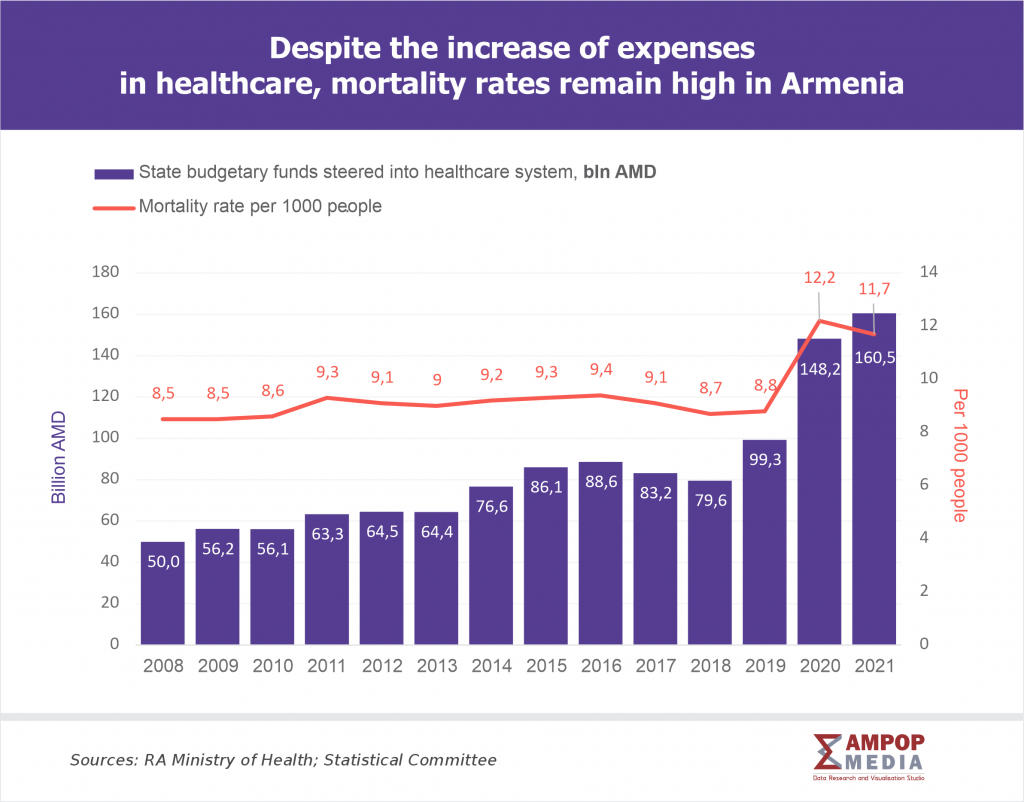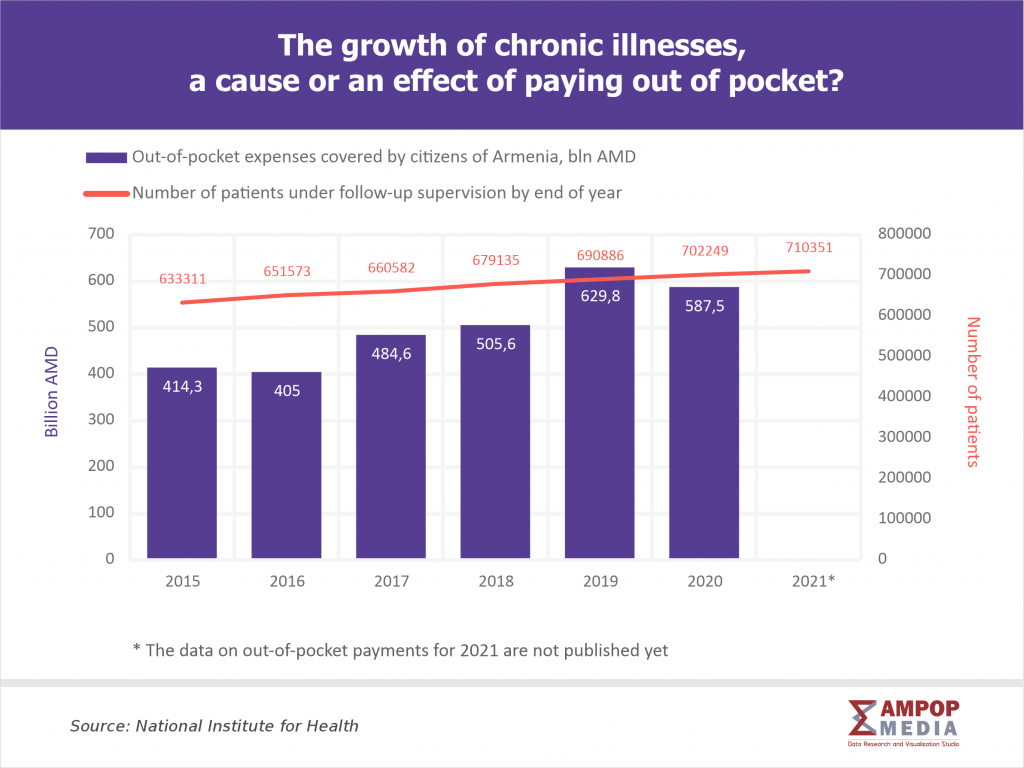It all started on 24 April 2022 on board of the Moscow-Yerevan flight, or, probably, earlier. At least that was the day Hasmik’s dream seemed to come finally true. Hasmik Aharonyan, who had moved to Moscow upon her parents’ decision from Armavir at an early age of three, had long made her mind to return to Armenia. The only reason of the delay were Hasmik’s studies. Yet, returning to Armenia, she believes, has never been an aim in itself: it meant commitment and a vision to bring a positive change in young doctor’s ancestral country.
“As a child I used to have a suitcase with all my personal belongings, which seemed important to me, ready to hit the road any moment my parents decided to return to Armenia. No one has ever taught me to love my fatherland. I don’t think that’s something you learn… You just love your land,” Hasmik Aharonyan, a children’s nephrologist shares with Ampop Media. [Editor’s note: a nephrologist specializes in diagnostics, treatment and prevention of kidney-related health conditions].
Hasmik has spent 27 years of her life in Moscow, has studied medicine, and has worked at the Moscow National Medical Scientific Research Center for Children’s Health.
Hasmik says, her main motivation at all levels of learning all the way from baccalaureate to doctorate has been to gain knowledge and experience that would later serve to the development of the healthcare system in Armenia.
Hasmik kept her finger on pulse of events in Armenia and was well aware of the problems existent in the healthcare system of Armenia, even when she was in Moscow. To support Armenian doctors studying in Moscow, Hasmik and her friends [including her non-Armenian peers], initiated the Armenian Medical Association. The association organized workshops and meetings with established professionals for young Armenian doctors, and created opportunities for duty shifts in Moscow based medical centers.
The war in 2020 changed a lot, including the perceptions she had about the industry and made it clear to her that working with doctors in Armenia and Artsakh was a priority. “As the war erupted, I felt unable to do anything in Moscow, and so, I came to Artsakh that December. That was my fifth visit to Artaskh and the first one following the war. I have first been to Stepanakert when I was 26, and I had feelings there I never had anywhere else. I felt I was finally home…,” Hasmik recalls.
After moving to Armenia, Hasmik started studying the deep-rooted problems of the country’s healthcare system. Hasmik decided she would be travelling to regional medical centers at least once a month to get to know their operation better.
In Yerevan, though, she joined the center, which, she believes, works by a model best fit to her understanding of it. The doctor has already visited 5 regional medical centers since moving to Armenia. She says, the mapping of the problems helps her understand that there is an urgent need to improve management approaches in the healthcare system.
The fact is, in the last 3 years (2019 through 2021) the budgetary funds allotted to the healthcare system have grown in average by 27.4%, against 2018; in 2021 the share of healthcare in the budget was equal to 8%. Yet, the quality of medical services lags dramatically behind.
“A quality healthcare system is always grounded on proper and efficient management. If the head of a medical center does not have enough management skills, the resources at hand cannot be distributed properly,” Hasmik believes.
Where to start?
The demographics of a country highly depends on the quality of healthcare. To ensure demographic growth in a long-term perspective, a healthcare system capable to provide the growth is needed. Hasmik says, the only way to reach that goal is to have a national strategy for healthcare development, a truly national one, localized to meet the needs of the country: “National strategy has no alternatives. It includes protocols of treatments; and instead of applying a general protocol, it is preferable to opt for the one that is closest to our needs, and is surely localized,” she says.
The young specialist says task groups are needed to keep direct contacts with regional doctors. We have to reach a point, where patients in regions have an opportunity to get timely and proper treatment in their local medical centers.
Involvement of Diaspora Armenian doctors in the development and efficient organization of healthcare system, pediatrician Hasmik Aharonyan says, is fundamental.
Daily analysis of statistical data provided by medical institutions is vital for assessment of efficiency of the medical centers globally.
Hasmik says, she clearly understands introduction and development of such practices in Armenia is going to take time and effort, but a doctor’s performance is assessed against data such as the number of hospital beds, prescribed antibiotics, and diagnoses.
Analysis of such statistical information also helps get a picture of how efficiently the resources provided by the state are used.
“With those data at hand, we will be able to understand which diagnoses result in prescription of antibiotics most often. That in turn will help understand which specialists need more retraining. The data will also help get morbidity rates of diseases,” the doctor says.
She also believes that the morbidity rates and geography of diseases shall be put in the basis of preventive practices that have to be developed. Here the primary care clinics play a fundamental role, and, so, have to be kept in the focus of attention.
The doctor underlines the expediency of preventive healthcare in terms of demographics, as well as from financial perspective, has been proven long time ago. Early diagnostics of a condition increases the chances to prevent complications and to ensure full treatment. Preventive measures also require less investments and imply less expenses than a treatment course.
“Prevention also ensures maintaining employability and extends life expectancy of patients,” doctor Aharonyan points, bringing Japan as a best example of preventive healthcare practices. Despite the high rates of gastric cancer, the country’s healthcare system has managed to undertake measures to ensure that about 80 percent of patients, are diagnosed in the first or the second stage of the tumor, and given higher recovery perspectives.
The doctor is hopeful that Armenian professionals all over the world will combine their knowledge and efforts to ensure a quality healthcare system is built, capable to render high quality services that would set conditions needed for demographic growth.
By Lilit Poghosyan
Visualization by Anush Baghdasaryan and Karine Darbinyan
Photos from the personal archive of Hasmik Aharonyan
More articles about #AccesstoHealthCare
© All the stories, infographics and other visuals bearing the Ampop Media logo is possible to publish on other audiovisual platforms only in case of an agreement reached with Ampop Media and/or JFF.
Փորձագետի կարծիք
First Published: 28/11/2022












